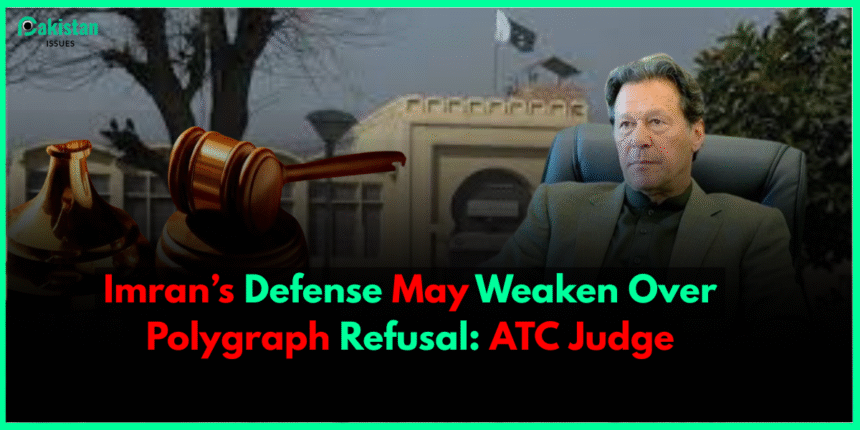Lahore’s Anti-Terrorism Court (ATC-I) has issued a significant ruling in the ongoing May 9 riot cases against former Prime Minister Imran Khan, highlighting grave implications of his refusal to comply with polygraph and photogrammetric tests. In a written order dated June 17, Judge Manzer Ali Gill warned that this stance could undermine Khan’s defense—which heavily relies on digital evidence—during trial proceedings.
Background: Digital Evidence at Center Stage
Prosecution efforts hinge on digital footprints, including voice, facial recognition, and mobile data related to the May 9 violence—the day protests erupted following Khan’s arrest. These digital files form the backbone of the case. By refusing to undergo forensic verification, Khan risks appearing evasive, potentially allowing the court to question the credibility of his denials.
ATC Ruling: No Enforcement, Yet Consequences Loom
Judge Gill’s directive came after prosecutors sought more time—nearly by June 11—to conduct forensic tests. The court denied the request, citing Khan’s firm refusal to cooperate, even turning down jail visits from testing teams. The judge noted Khan’s unique status: unlike most suspects under physical remand, he remains in custody but not under direct investigative control, enabling him to decline tests.
While acknowledging that a court cannot compel anyone to take a lie detector test, Judge Gill emphasized the downside: refusal may indeed weaken the defense, allowing prosecutors to claim Khan staged avoidance to shield himself from incriminating evidence.
Defense vs Prosecution: Clash of Legal Strategies
Khan’s team maintains refusal is consistent with his legal rights. PTI lawyers cite Article 13 (self-incrimination protections) and argue polygraph tests in Pakistan are non-compulsory and non-binding. azaditimes.com
Conversely, prosecutors maintain forensic proof is essential for a thorough investigation. They argue absence of tests delays justice and weakens factual clarity.
Broader Implications
A high-profile refusal sets a precedent. If Khan’s stance is perceived as deliberate obstruction, courts may question the reliability of his claims. This could tip the balance in a case where evidence is largely digital and circumstantial. dawn.com
Next Steps to Monitor
- Legal Maneuvers: Will Khan appeal ATC’s ruling or offer an alternative forensic procedure?
- Investigation Directions: As the court directs I.O. to explore technical alternates, agencies may turn to metadata analysis, witness records, and cross-platform corroboration.
- Trial Outcome: How will refusal and forensic gaps shape judicial perception and verdict?
In sum, while Khan retains the right to refuse such tests, ATC Judge Gill’s order makes clear: evasive conduct carries consequences. Rejecting polygraph and facial analysis risks undermining defense credibility and narrows his strategic options in court.










